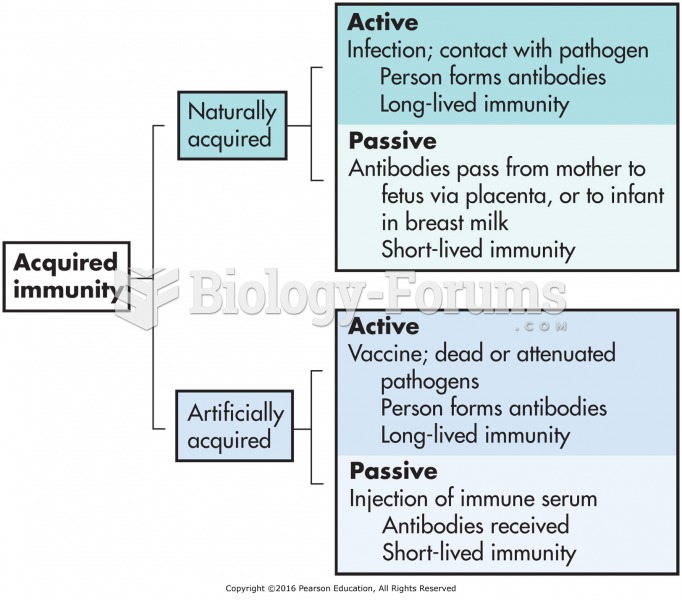|
|
|
There are more nerve cells in one human brain than there are stars in the Milky Way.
Illicit drug use costs the United States approximately $181 billion every year.
Human neurons are so small that they require a microscope in order to be seen. However, some neurons can be up to 3 feet long, such as those that extend from the spinal cord to the toes.
In most cases, kidneys can recover from almost complete loss of function, such as in acute kidney (renal) failure.
Though newer “smart” infusion pumps are increasingly becoming more sophisticated, they cannot prevent all programming and administration errors. Health care professionals that use smart infusion pumps must still practice the rights of medication administration and have other professionals double-check all high-risk infusions.







